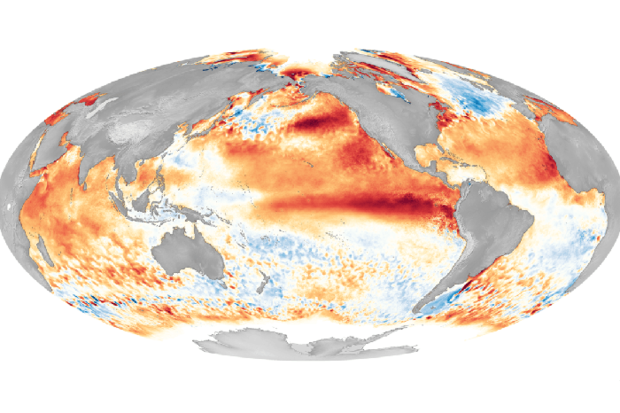NOAA AOML scientists project future changes in ENSO variability

This sea surface temperature anomaly map (high temperatures in red, low temperatures in blue) shows a strong El Niño in 2016. Credit: NOAA

This sea surface temperature anomaly map (high temperatures in red, low temperatures in blue) shows a strong El Niño in 2016. Credit: NOAA
In a new study published in Nature Communications, scientists at NOAA’s Atlantic Oceanographic & Meteorological Laboratory (AOML) investigate the projected changes in the seasonal evolution of El Niño – Southern Oscillation (ENSO) in the 21st century under the influence of increasing greenhouse gases. The study found that global climate impacts on temperature and precipitation are projected to become more significant and persistent, due to the larger amplitude and extended persistence of El Niño in the second half of the 21st Century (2051-2100).
ENSO is a recurring climate pattern that occurs on average from 2 to 7 years, which involves changes in the sea surface temperature in the central and eastern Pacific Ocean. The oscillating warming pattern, or El Niño, directly affects rainfall patterns in the tropics, as well as strongly influences weather across the globe.
Read more at the link below.